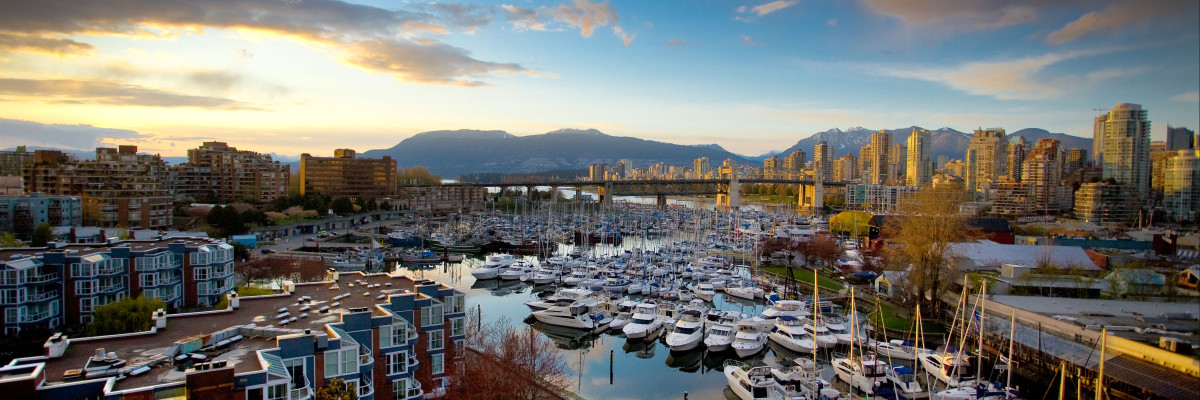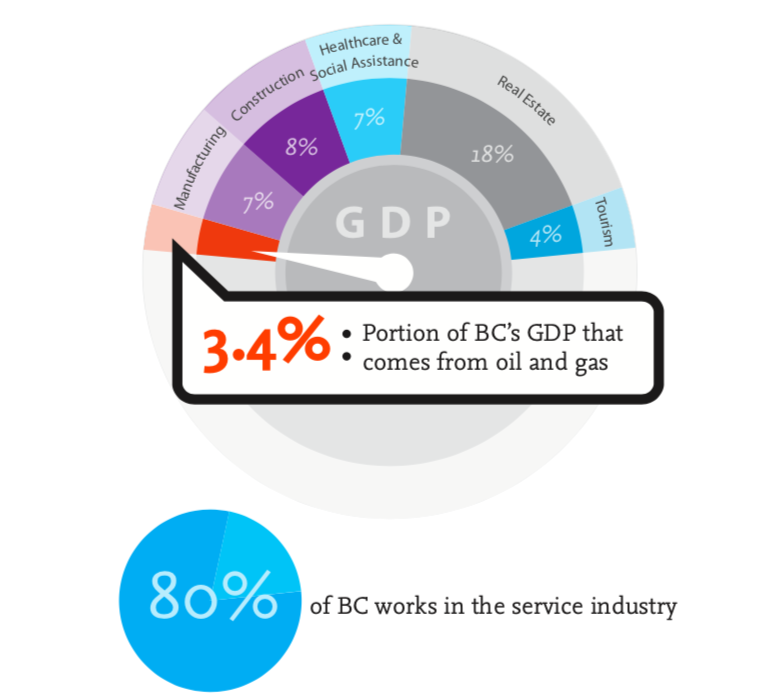Much of the recent debate around Kinder Morgan’s pipeline and tanker project has centered around vigorous debate between the provinces of BC and Alberta and the question or whether the project is in the national interest. Ultimately, this depends on what kind of economy Canadians want to invest in, and what kind of economic future we want to create.
There are also important questions about whether Canada’s economy is reliant on oil sands expansion, and whether the pipeline would create long-term jobs. Because of these key questions, we are updating and re-sharing some of our previous research around what’s fuelling Canada’s economy and where Kinder Morgan’s pipeline fits in.
At the same time, over 700 businesses have joined together to raise concerns about investing taxpayer dollars in Kinder Morgan’s risky pipeline and tanker project at http://LetsMoveForward.ca
A remarkably diverse economy
It’s often said that British Columbia is a resource-based province. In actual fact, the reality is a lot more complex. While it’s true that much of BC was built on natural resources, and that even today sectors like technology and construction have a certain amount of linkages and inter-relationships with primary resource sectors, the basis of our economy has overwhelmingly shifted to service-based industries.
Over the past few decades, a monumental shift has been taking place – more than 4 out of 5 British Columbians now work in services, and the majority of our GDP comes from these sectors. Only a small percentage comes from oil, gas, and supporting services.
In fact, technology, tourism, construction, film and television each create more jobs than oil, gas, and mining combined.
BC is also in the middle of an economic boom. It led the country in GDP growth in 2015 and 2016, and is continuing to grow at a fast pace (according to the BMO Blue Book).
A few highly visible sectors are credited with the most recent economic growth and job creation – notably construction and real estate. However, it’s our remarkably diverse economy that anchors our prosperity. British Columbia’s economy is largely made up of non-resource based industries and thousands of small businesses in sectors from tourism to tech.
Where Does Our Wealth Come From?
When GDP figures for British Columbia are broken down, service industries make the largest contribution to provincial wealth – approximately 75%.
Real estate makes up the largest share of that, accounting for more than 18% of GDP. Construction, wholesale and retail trade, and health care also make up significant portions. By contrast, oil, gas, and support services make up just 3.4% of BC’s GDP. As a whole, the energy sector’s total contribution to provincial GDP is 5.7% (source).
Where are the Jobs?
While we may think of BC as a resource-based province, things have changed over the years. The mining, oil and gas sector employs just 1.2% of the workforce, or approximately 27,000 people. By comparison, technology, tourism, construction, and even film and television employ significantly more people.
According to the BC Ministry of Finance, BC’s biggest employers are:
- Wholesale and retail trade – 353,000 jobs
- Health and welfare services – 287,000 jobs
- Construction – 202,000 jobs
- Professional, scientific, technical – 188,000 jobs
- Accommodation and food services – 178,000 jobs
BC’s workforce is growing, and, fortunately, jobs are increasing to keep pace. In 2015, BC saw its labour force increase 1.3%, the fastest annual rate of growth since 2008. At the same time employment activity increased, primarily from full-time jobs in service industries (source).
Small businesses make up 98% of all BC businesses.
Read our full 2016 report for more details: WHAT’S FUELLING OUR ECONOMY: Is Kinder Morgan’s Proposed Pipeline Inconsistent with New Economic Trends and Realities?







